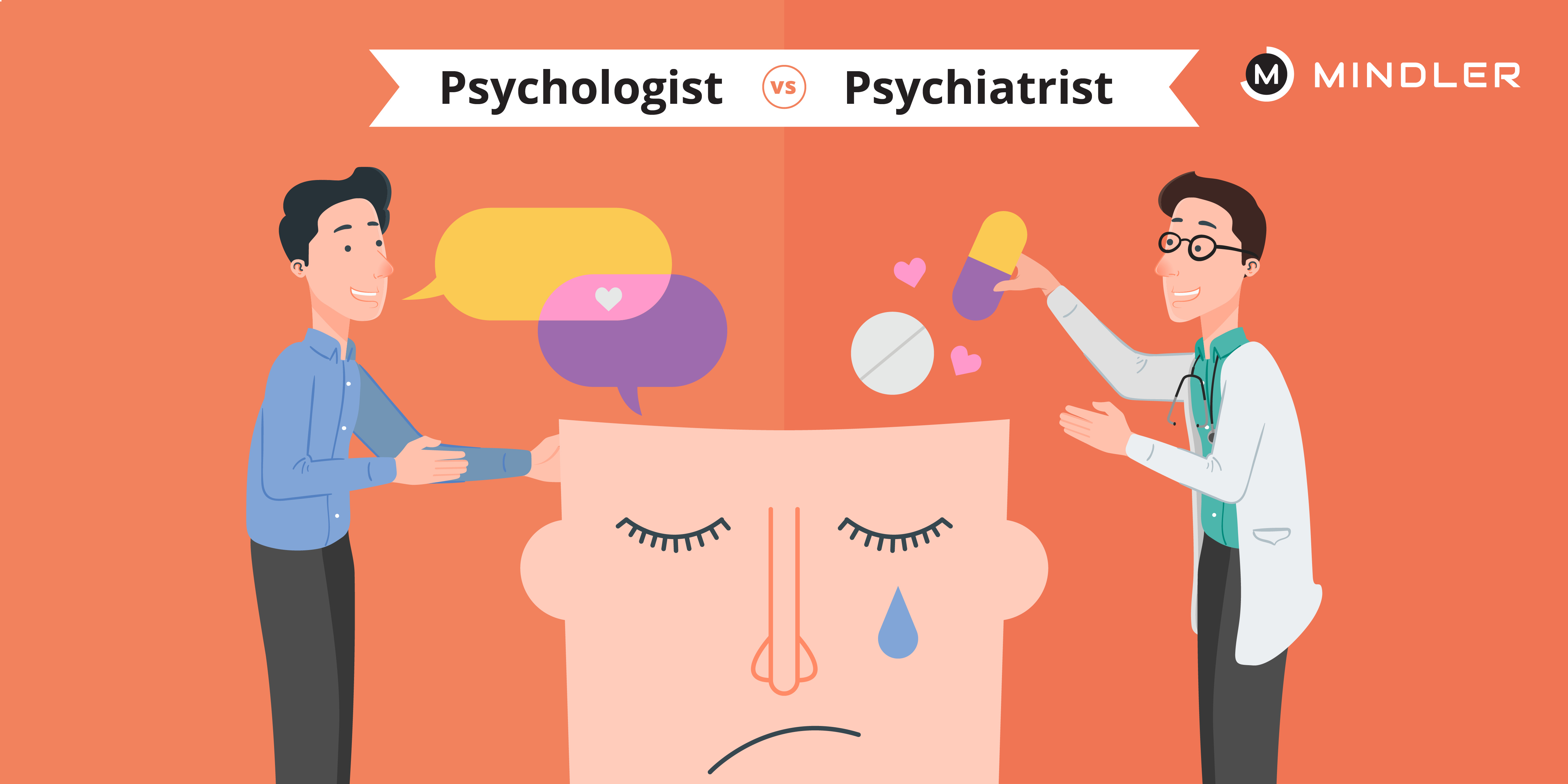Finding the Best Psychologist in Delhi: A Guide to Your Psychological Health Trip
Wiki Article
The Role of Psych Therapy in Handling Stress And Anxiety and Anxiety
Psychotherapy has actually arised as a cornerstone in the monitoring of stress and anxiety and clinical depression, using tailored treatments that range from Cognitive-Behavioral Therapy (CBT) to mindfulness-based approaches. These strategies not only help individuals in determining and restructuring unfavorable thought patterns however also foster present-moment understanding, reducing the propensity to ponder.Comprehending Anxiousness and Anxiety
Comprehending anxiousness and clinical depression calls for a comprehensive take a look at these prevalent mental health conditions, which frequently exist together and substantially effect an individual's day-to-day live. Anxiety is characterized by persistent, excessive fear and are afraid concerning daily circumstances. Signs include uneasyness, quick heart price, and problem concentrating. Conversely, clinical depression shows up as a pervasive feeling of pessimism, emptiness, or sadness, usually come with by a loss of rate of interest in previously appreciated activities, changes in cravings, and sleep disruptions.
The conjunction of anxiousness and clinical depression can worsen signs and make complex medical diagnosis and therapy. Individuals dealing with both problems might experience more severe signs and symptoms, greater disability in job-related and social performance, and a longer duration of disease. This comorbidity requires a nuanced understanding and method to therapy.
Cognitive patterns like adverse thinking and maladaptive behaviors can continue these problems. Comprehensive assessment by psychological health and wellness experts is essential to recognize the existence and level of these conditions, leading the way for customized restorative approaches.
Kinds Of Psychotherapy
Psychiatric therapy, also referred to as talk treatment, includes a selection of treatment methods developed to alleviate signs and symptoms of anxiousness and anxiety by addressing the underlying psychological and psychological problems. Various sorts of psychiatric therapy are tailored to fulfill the distinct needs of people, offering a series of approaches to psychological healthcare.One widely used form is psychodynamic treatment, which concentrates on understanding and fixing subconscious disputes originating from early life experiences. By checking out these deep-rooted problems, people acquire insight into their current habits and mood.
Social Treatment (IPT) is an additional effective modality that focuses on enhancing social connections and function to lower depressive signs and symptoms. It normally addresses issues such as sorrow, function changes, and interpersonal disputes.
Humanistic treatments, such as Client-Centered Treatment, highlight individual development and self-actualization. Best Psychologist in Delhi. These techniques produce a supportive atmosphere where individuals can explore their sensations and establish a more powerful sense of self
Finally, Dialectical Habits Treatment (DBT) incorporates cognitive-behavioral strategies with mindfulness practices. Initially created for borderline individuality condition, DBT has been adjusted to deal with anxiousness and anxiety by teaching abilities in distress resistance, emotional regulation, and social effectiveness.
These diverse psychotherapeutic strategies supply several pathways to mental health and health, dealing with restorative needs and specific preferences.
Cognitive-Behavioral Therapy (CBT)
Amongst the various psychotherapeutic methods, Cognitive-Behavioral Therapy (CBT) stands out for its organized, goal-oriented strategy in treating anxiety and anxiety. Developed by Aaron T. Beck in the 1960s, CBT is asserted on the concept that maladaptive reasoning patterns add substantially to emotional distress and behavioral concerns. By determining and reorganizing these negative idea patterns, CBT intends to minimize symptoms and foster healthier cognitive procedures.CBT is usually temporary, spanning 12 to 20 sessions, and includes a joint effort in between specialist and client. The treatment incorporates a variety of methods, consisting of cognitive restructuring, exposure therapy, and behavior activation. Cognitive restructuring concentrates on challenging and changing altered cognitions, while direct exposure therapy gradually adapts patients to anxiety-provoking stimuli, decreasing evasion actions. Behavior activation looks for to increase engagement in satisfying tasks to neutralize depressive states.
Empirical evidence emphasizes the efficiency of CBT, with countless researches showing its performance in lowering signs and symptoms of anxiousness and clinical depression. This healing technique has actually been adapted for different populations and setups, confirming adaptable and versatile. Its structured nature, empirical assistance, and concentrate on skill acquisition make CBT a cornerstone in the psychotherapeutic therapy of stress and anxiety and anxiety.
Mindfulness-Based Techniques
Mindfulness-Based Strategies have actually garnered substantial interest over the last few years as reliable treatments for anxiousness and clinical depression. Rooted in ancient reflection methods, these strategies aim to cultivate an increased awareness of today moment, which can aid individuals disengage from the ruminative idea patterns typically associated with anxiety and depressive disorders.
Likewise, Mindfulness-Based Cognitive Therapy (MBCT) incorporates concepts from Cognitive-Behavioral Therapy (CBT) with mindfulness techniques. MBCT is especially efficient in avoiding relapse in people with recurring useful content clinical depression. By acknowledging early indication of depressive episodes, individuals educated in MBCT can apply mindfulness practices to minimize the beginning of full-blown episodes.
Advantages of Psychotherapy
Numerous researches have shown the profound advantages of psychotherapy for people coming to grips with anxiety and clinical depression. Among the crucial advantages is the renovation of emotional law. Psychotherapy equips individuals with coping methods to manage stressful emotions, consequently decreasing signs and symptoms of anxiety and anxiety. Cognitive-behavioral treatment (CBT), as an example, aids individuals determine and challenge unfavorable idea patterns, fostering an extra balanced and positive outlook.Furthermore, psychiatric therapy supplies an organized setting for self-exploration and understanding. By discussing their experiences and feelings with a qualified therapist, individuals can discover underlying problems adding to their mental health and wellness battles. This self-awareness is a critical action towards lasting healing and durability.
An additional substantial advantage is the improvement of interpersonal skills. Anxiousness and clinical depression frequently strain relationships, leading to seclusion. Via healing treatments, clients discover effective communication and conflict-resolution abilities, which can enhance their interactions and foster supportive relationships.
In addition, psychotherapy supplies a tailored strategy to treatment. Inevitably, the benefits of psychiatric therapy extend past symptom alleviation, adding to try this general wellness and top quality of life.

Final Thought
Psychiatric therapy significantly adds to the management of anxiety and anxiety by using efficient coping approaches and a safe and secure setting for self-exploration. Methods such as Cognitive-Behavioral Therapy (CBT) and mindfulness-based approaches contribute in determining and restructuring negative thought patterns, while promoting present-moment understanding. These tailored interventions not only minimize symptoms but also enhance emotional regulation and social abilities, consequently enhancing general well-being and top quality of life for people dealing with these mental health challenges.Psychotherapy Full Report has emerged as a keystone in the administration of stress and anxiety and clinical depression, supplying customized interventions that vary from Cognitive-Behavioral Treatment (CBT) to mindfulness-based strategies.Recognizing anxiousness and anxiety requires a thorough appearance at these widespread mental health problems, which typically exist side-by-side and substantially impact a person's everyday life.Amongst the various psychotherapeutic methods, Cognitive-Behavioral Therapy (CBT) stands out for its organized, goal-oriented approach in treating anxiousness and anxiety.Countless research studies have actually shown the extensive advantages of psychotherapy for people grappling with anxiety and depression. Psychiatric therapy equips individuals with coping methods to manage traumatic emotions, consequently reducing signs of stress and anxiety and clinical depression.
Report this wiki page